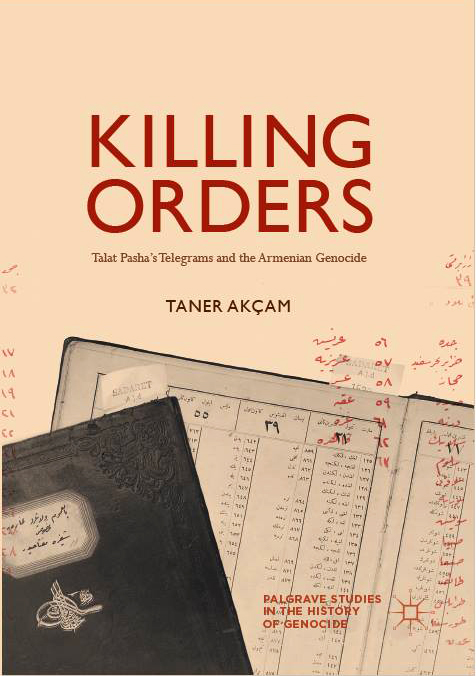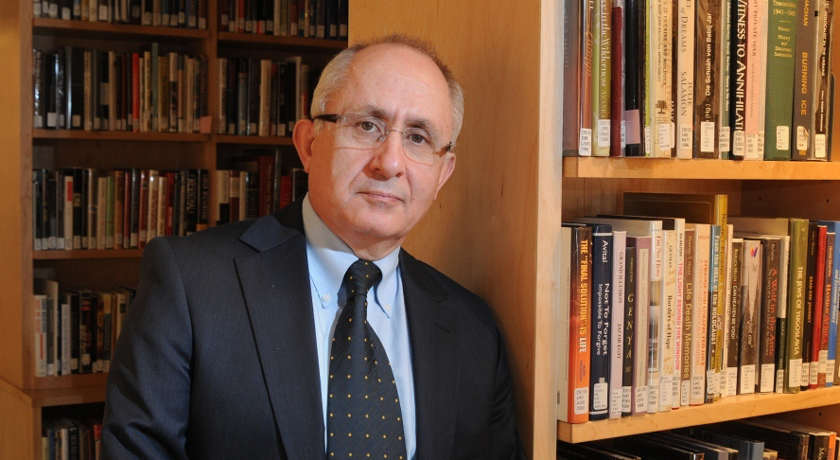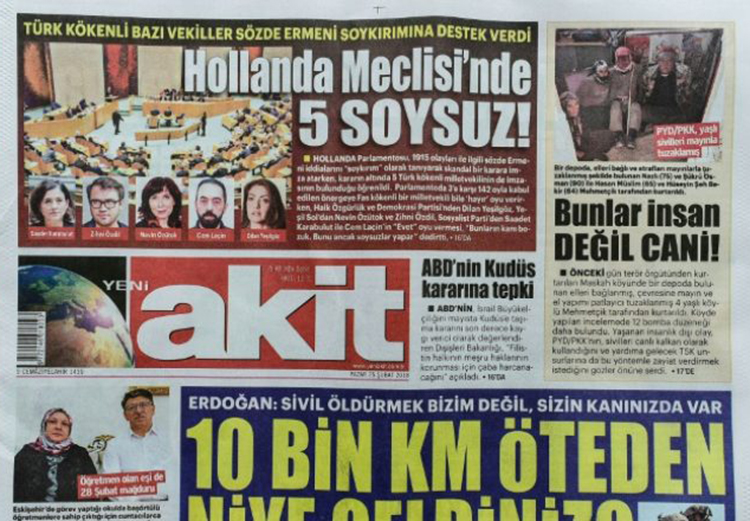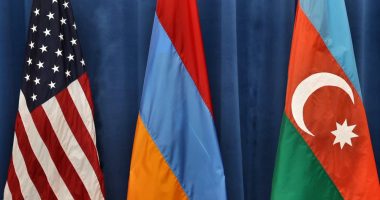Interview with Turkish historian and sociologist Taner Akçam by Aravot.am columnist Ami Chichakyan
– Mr. Akçam your new book “Killing Orders: Talat Pasha’s Telegrams and the Armenian Genocide” was out in January. Can you please introduce it?
– Aram Andonian, an Armenian intellectual and survivor of Genocide, sought out documents to establish the historical record about deportations and killings. In 1918, Naim Efendi, an Ottoman bureaucrat in Aleppo sold to Andonian a cache of 21 original Ottoman documents, along with his handwritten memoir. The memoir included a total of 52 original documents Naim had copied by hand. In 1921, Andonian published The Memoirs of Naim Bey, illustrated with 14 of the original documents. Some of these documents originated with the Minister of Interior Talat Pasha, the architect of the genocide, and contain direct orders for the killing of Armenians.
A 1983 book, published by the Turkish Historical Society, asserted that these documents were forgeries. The claim was based on three arguments: 1) an Ottoman bureaucrat named Naim Effendi never existed; 2) this non-existent person can’t have written a memoir; 3) the original documents must be fakes as they contain significant mistakes relating to signatures and dates.
Indeed, until today, no evidence was found to prove the existence of a government official named Naim Effendi which would likewise make it possible to authenticate the memoir. The original documents, meanwhile, remained missing. Thus, it was impossible to refute the arguments of the Turkish Historical Society. The topic was remembered as “the fake telegraphs attributed to Talat Pasha,” which became the central pillar of Turkish denialism of Armenian Genocide.


I published these new findings first in 2016 in a Turkish book entitled “The Memoirs of Naim Efendi and the Telegrams of Talat Pasha.” Now it is available in English. But the English version of the book has additional two chapters. These are very important chapters. In their 1983 book, Turkish Historical Society made approximately twelve different arguments against the authenticity of the Naim’s documents. Some of the documents that Naim gave to Andonian, signed by the governor of Aleppo Mustafa Abdülhalik. Turkish Historical Society claimed that these signatures were fake. They published other documents from Ottoman archive with the signature of the governor Abdülhalik. The signatures were a little bit different than the signatures on Naim’s documents, they were not identical. Another issue was related to the dates on the documents. I didn’t deal with these arguments in my Turkish book. Now in my English book, I am introducing in one chapter the question of signatures and the question of wrong dates and showing that Turkish Historical Society’s arguments are wrong.
In English book, there is also a very long introduction on Turkish denialism which is not in Turkish book. I discussed the relationship between facts and the truth. My main argument is that Denialism does not only mean to deny the truth or facts, but denialism creates its own facts and creates its own truth.
I introduce several Ottoman documents showing that how Turkish denialism has produced documents and created its own truth. I think this is an important particularity of Armenian Genocide. The Ottoman government created facts and truth even during Genocide was happening. From the beginning, they started creating parallel facts, a parallel world of truth based on facts, documents that you can’t really question their authenticity: they are authentic documents. So, if we want to understand Turkish denialism we should know the mechanism how they created these parallel facts and a different world of truth based on these facts.
– Mr. Akçam what is your aim for publishing this book?
– I don’t have any specific aim. I am a historian and I want the truth should come out. My job is to write on certain historical occurrences with honesty. This is my job. I should be criticized only if I am not honest and not telling the truth. I want to understand one of the biggest human catastrophes in the beginning of the 20th century with all related facts.
Of course, we know that the Armenian genocide is very much politicized. Because of this reason we should make a distinction between the academic studies and the politic. How politics can deal with academic production is an issue of the politic. I know that my academic work is a major blow against Turkish government’s denialism. They cannot continue to deny the Armenian genocide with their standard arguments. What I succeed showing with this book is that there are original-authentic killing orders and the Ottoman government intentionally destroyed Armenian population.
Turkish government cannot continue to claim that there was no intention of Ottoman government to exterminate Armenians; there were no killing orders. Turkish government cannot continue to deny that Union and Progress party intentionally destroyed the Armenian people. Of course, they will find some other arguments and continue denying the historical facts. However, they have to find some new argument. The old arguments won’t work anymore.
They may attack my personality. Or they may invent some new arguments or some new facts. As I wrote in my book, the truth is not only the facts, the truth is a struggle for the power. If you have the power you have the truth. There is one major difference between Holocaust and Armenian genocide: in Holocaust, the truth has the power, denialists do not have the power they are in minority. In Armenian case, denialist has the power. The United States, Turkey, Great Britain, Israel – these are four major powers that control the truth. They determine what the truth is. There is no other difference between Holocaust and the Armenian genocide.
Even though over the years, those who claimed that Armenian genocide is a historical fact, won the power struggle on the grassroots level, among the people in America, in Turkey, in Europe. But we couldn’t turn this into the state’s level. So, this is a power struggle. And my hope is that the people can use this book and won the struggle and truth grasps the political power.
– Your Turkish book has already been published for approximately 2 years. Did Turkish NGOs or political figures manage to use it as a tool?
– In Turkey the situation is known by everybody: Armenian genocide is not anymore on the agenda of Turkish society. And there is a repressive regime, and this regime is conducting an aggressive war in Syria. They are now attacking the Syrian Kurds. It’s hard to believe that the Armenian Genocide will be an issue in coming years unless there would be a change in the government. Turkey is becoming more and more authoritarian, more and more dictatorial and current problems are more pressing than historical facts that go 100 years back.
Despite the fact that there are a lot of parallels what Kurds have been experiencing in these years with those that Armenian had lived during the World War I, the Armenian Genocide won’t be a public topic in Turkey. However, this is the dilemma. Kurds have been experiencing all these because Turks are not ready to face their own history. As long as there is no historic reckoning with the past, Kurds will continue to suffer. Unfortunately, this is the fact.
I assume the book will create important discussions and create an attraction here in the United States and in other European countries. There is no end to the fight for truth. We should continue to fight for the truth or justice. This is all that I can say.










